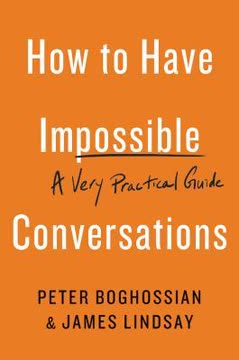Key Takeaways
1. Obsessive personality traits: A double-edged sword of success and suffering
You know them. You may be one of them. And if you are, you have much to be proud of. You're one of the solid, good people of the world: honest, reliable, hardworking, responsible, exacting, self-controlled.
Obsessive traits defined. Obsessive personality traits include perfectionism, conscientiousness, attention to detail, and a strong need for control. These qualities often lead to professional success, reliability, and trustworthiness. However, they can also cause significant problems in personal relationships and overall life satisfaction.
The dark side of obsessiveness. While obsessive traits can drive achievement, they often come at a high cost:
- Inability to relax and enjoy life
- Difficulty making decisions or committing to relationships
- Chronic feelings of anxiety and inadequacy
- Strained personal relationships due to rigidity and control issues
- Workaholic tendencies that neglect other aspects of life
2. The myth of control: Unconscious beliefs driving obsessive behavior
If I always try my very best and if I'm alert and sharp enough, I can avoid error. Not only can I perform flawlessly in everything important and be the ideal person in every situation, but I can avoid everyday blunders, oversights, and poor decisions or choices.
The illusion of perfect control. Obsessives often harbor an unconscious belief that they can and must control every aspect of their lives to ensure safety and success. This myth of control serves as a protective mechanism against anxiety and uncertainty.
Consequences of the control myth:
- Chronic anxiety when faced with unpredictable situations
- Difficulty delegating tasks or trusting others
- Overpreparation and excessive planning
- Frustration and disappointment when life doesn't go as planned
- Inability to adapt to changing circumstances
3. Perfectionism: The relentless pursuit of flawlessness and its costs
I just can't stumble," patient after patient has told me. "Every small failure is devastating.
The perfectionist's credo. Perfectionists believe that any mistake is unacceptable and that their worth depends on flawless performance. This mindset often stems from childhood experiences where love or approval seemed conditional on achievement.
The impact of perfectionism:
- Procrastination due to fear of imperfect results
- Chronic dissatisfaction with one's efforts
- Difficulty completing tasks or projects
- Strained relationships due to unrealistic expectations of others
- Increased risk of burnout and depression
4. Decision paralysis: The fear of making wrong choices
I keep taking more notes, making more outlines," she told me, "but I don't actually write. When I come up with an idea, rather than just write it out, I'll look for more material to make the idea more profound. Yet I realize that my best ideas come from writing, rather than from outlining and taking notes.
The agony of choice. Obsessives often struggle with decision-making, fearing that any choice could be a mistake. This leads to excessive information gathering, analysis paralysis, and a tendency to avoid commitment.
Overcoming decision paralysis:
- Recognize that no decision is perfect; focus on "good enough"
- Set time limits for making decisions
- Practice making small, low-stakes decisions quickly
- Accept that some regret is normal and doesn't indicate a bad choice
- Focus on learning from decisions rather than judging them
5. Demand-sensitivity and resistance: The struggle with expectations
I get a tightness inside, a tightness in my gut," is how one patient described it. "I feel a suppressed anger.
Heightened sensitivity to demands. Many obsessives are acutely aware of expectations placed upon them, both real and perceived. This sensitivity can lead to feeling overwhelmed by even minor requests or obligations.
The paradox of demand-resistance:
- Automatic negative reaction to perceived demands or pressure
- Difficulty enjoying activities that feel obligatory
- Procrastination or subtle sabotage of tasks, even when desired
- Strained relationships due to perceived pressure from others
- Internal conflict between wanting to comply and resisting demands
6. Emotional guardedness: The price of self-protection
I'm afraid," she said, bursting into tears. "I'm afraid that if you get close, what's inside won't be good enough.
The fear of vulnerability. Many obsessives struggle with emotional intimacy, fearing rejection or loss of control if they open up to others. This guardedness can stem from early experiences of criticism or betrayal.
Consequences of emotional guardedness:
- Difficulty forming deep, meaningful relationships
- Feelings of loneliness and disconnection
- Misinterpretation of guardedness as arrogance or indifference
- Missed opportunities for emotional support and growth
- Increased stress due to lack of emotional outlets
7. Overthinking: The trap of worry, rumination, and doubt
My mind is a regular worry machine," one woman said. "Sometimes I'll churn through every conceivable aspect of a problem, then I'll tell myself, 'That's enough,' and will try to shift to something more pleasant. A few minutes later my thoughts have crept right back to my worries. It's as if worrying is as automatic as breathing, something my mind keeps doing, no matter what.
The overthinking mind. Obsessives often engage in excessive worry, rumination, and doubt. This mental habit can be exhausting and interfere with daily functioning and enjoyment of life.
Breaking the overthinking cycle:
- Practice mindfulness to stay present
- Use thought-stopping techniques (e.g., snapping a rubber band on wrist)
- Challenge catastrophic thinking with realistic assessments
- Set aside designated "worry time" to contain anxious thoughts
- Engage in physical activity or absorbing hobbies to redirect mental energy
8. Rigidity and orderliness: When structure becomes a prison
I seem to spend most of my time doing mindless busy work, but I don't seem to be living. I don't feel like I'm really living.
The need for order and predictability. Obsessives often crave structure and routine, finding comfort in predictability. However, this rigidity can become extreme, leading to inflexibility and resistance to change.
Balancing structure and flexibility:
- Challenge the belief that there's only one "right" way to do things
- Practice tolerating small amounts of disorder or unpredictability
- Experiment with spontaneity in low-stakes situations
- Recognize when orderliness is interfering with enjoyment or efficiency
- Cultivate curiosity about new experiences and perspectives
9. Workaholism: The addiction to productivity and its consequences
I never relax," Therese told me unhappily. "There's always something to do. I either have to clean the house, pay bills, or something. And if I do take time off, I start to feel like I'm neglecting something. I feel lazy, and in my mind that's reprehensible.
The workaholic mindset. Many obsessives equate productivity with self-worth, leading to an addiction to work and constant busyness. This can result in neglect of personal relationships, health, and overall life balance.
The costs of workaholism:
- Burnout and physical health problems
- Strained or neglected personal relationships
- Lack of time for self-care and personal growth
- Difficulty enjoying leisure activities without guilt
- Reduced creativity and overall productivity in the long run
10. Breaking free: Strategies for a more balanced and fulfilling life
When I watch TV, I tend to feel guilty that I'm not getting one thing or another done. Or I'll watch for a few hours, and then afterward regret that I 'blew' the time and could have been doing something productive.
Embracing imperfection and balance. Overcoming obsessive tendencies requires a willingness to challenge deeply ingrained beliefs and behaviors. It involves learning to tolerate uncertainty, imperfection, and the natural ebb and flow of life.
Key strategies for change:
- Practice self-compassion and challenge self-critical thoughts
- Set realistic goals and celebrate small victories
- Gradually expose yourself to feared situations (e.g., making mistakes)
- Prioritize relationships and leisure activities
- Seek professional help, such as cognitive-behavioral therapy
- Cultivate mindfulness to stay present and reduce overthinking
- Experiment with letting go of control in small, manageable ways
- Redefine success to include personal fulfillment and well-being, not just achievement
Last updated:
FAQ
1. What is "Too Perfect: When Being in Control Gets Out of Control" by Allan E. Mallinger about?
- Focus on Obsessive Personality: The book explores the obsessive personality style, characterized by perfectionism, a need for control, and self-imposed standards that can become self-defeating.
- Not Just OCD: Mallinger distinguishes between obsessive-compulsive disorder (OCD) and the broader obsessive personality, which is a set of enduring traits rather than a clinical disorder.
- Case Studies and Practical Advice: Through real-life case studies and practical strategies, the book helps readers recognize, understand, and address obsessive traits in themselves or loved ones.
- Goal of Greater Fulfillment: The ultimate aim is to help readers move toward a more relaxed, flexible, and fulfilling life by understanding and moderating their obsessive tendencies.
2. Why should I read "Too Perfect" by Allan E. Mallinger?
- Self-Understanding: If you or someone you know struggles with perfectionism, indecisiveness, workaholism, or emotional guardedness, the book offers deep insights into these patterns.
- Practical Tools: Mallinger provides actionable advice and exercises to help readers break free from self-defeating habits and improve relationships, work, and overall well-being.
- Therapist’s Perspective: Written by an experienced psychiatrist, the book combines clinical expertise with empathy, making it accessible to both laypeople and professionals.
- Validation and Hope: Readers often find comfort in realizing they are not alone and that change is possible, even for deeply ingrained personality traits.
3. What are the key takeaways from "Too Perfect" by Allan E. Mallinger?
- Control and Perfectionism: The obsessive personality is driven by an unconscious need for control and perfection, which can lead to anxiety, indecision, and dissatisfaction.
- Self-Defeating Virtues: Traits like conscientiousness, orderliness, and self-discipline are valuable, but when taken to extremes, they become sources of distress.
- Change is Possible: Understanding the roots and manifestations of obsessiveness is the first step toward change; practical strategies can help moderate these traits.
- Relationships Matter: Obsessive traits often impact relationships, and both obsessives and their loved ones can benefit from greater awareness and communication.
4. How does Allan E. Mallinger define the obsessive personality in "Too Perfect"?
- Cluster of Traits: The obsessive personality is marked by perfectionism, fear of errors, need for order, emotional guardedness, stubbornness, and chronic worry.
- Need for Control: At its core, obsessiveness is about a powerful, often unconscious, need to feel in control of oneself, others, and life’s uncertainties.
- Not Just OCD: Mallinger clarifies that obsessive personality is a pervasive style, not just a set of compulsive behaviors or rituals seen in OCD.
- Self-Generated Anguish: Many obsessives are unaware that their suffering is self-imposed, often taking pride in the very traits that cause them distress.
5. What is the "Myth of Control" in "Too Perfect" and why is it important?
- Illusion of Safety: The "Myth of Control" is the unconscious belief that perfect self-control and vigilance can guarantee safety and prevent misfortune.
- Three Areas of Control: Obsessives seek control over themselves, others, and impersonal events (like illness or accidents), often to an unreasonable degree.
- Unattainable Standard: This myth is ultimately unattainable, leading to chronic anxiety, disappointment, and a sense of failure when life proves unpredictable.
- Therapeutic Insight: Recognizing and challenging this myth is crucial for obsessives to reduce anxiety and live more flexibly.
6. How does perfectionism manifest in the obsessive personality according to "Too Perfect"?
- Perfectionist’s Credo: Perfectionists believe they must avoid all mistakes, be flawless, and that their worth depends on their performance.
- Self-Criticism and Procrastination: Fear of errors leads to procrastination, over-preparation, and inability to finish tasks, as nothing ever feels "good enough."
- Relationship Strain: Perfectionism can cause social inhibition, fear of embarrassment, and a critical attitude toward others, damaging relationships.
- Pain vs. Pleasure: Unlike healthy achievers, perfectionists rarely enjoy their accomplishments, as the focus is always on what could have been better.
7. What are "demand-sensitivity" and "demand-resistance" in "Too Perfect," and how do they affect behavior?
- Demand-Sensitivity: Obsessives are highly attuned to real or imagined expectations from others, often perceiving requests as demands or obligations.
- Demand-Resistance: In response, they may unconsciously resist or procrastinate, even with tasks they want to do, as a way to assert autonomy.
- Self-Sabotage: This dynamic can lead to work blocks, strained relationships, and loss of enjoyment in both work and leisure.
- Awareness as Solution: Recognizing these patterns is the first step toward reclaiming a sense of agency and pleasure in daily activities.
8. How does "Too Perfect" by Allan E. Mallinger address indecisiveness and fear of commitment?
- Fear of Error: Indecisiveness stems from the perfectionist’s fear of making the wrong choice, leading to endless weighing of options and avoidance of decisions.
- Commitment Phobia: Obsessives may struggle to commit in relationships or major life choices, fearing loss of options and future regret.
- Escape Hatches: They often use rationalizations or keep options open to avoid feeling trapped by decisions.
- Practical Strategies: Mallinger offers methods to challenge irrational beliefs about decisions, encouraging action, acceptance of imperfection, and living with choices.
9. What practical methods and advice does Allan E. Mallinger offer in "Too Perfect" for overcoming obsessive traits?
- Thought-Stopping Techniques: For worry and rumination, Mallinger recommends behavioral methods like snapping a rubber band and commanding oneself to "Stop!"
- Reframing Self-Talk: He encourages replacing "I should" or "I have to" with "I want," reconnecting with personal desires rather than obligations.
- Gradual Exposure: Facing social fears or perfectionism through small, manageable steps helps reduce anxiety and build confidence.
- Setting Limits and Prioritizing: Learning to delegate, set boundaries, and accept "good enough" work are key to reducing overwork and stress.
10. How does "Too Perfect" explain the impact of obsessive traits on relationships and what advice does it give to loved ones?
- Common Relationship Issues: Obsessive traits can lead to pickiness, emotional distance, rigidity, and workaholism, making partners feel unloved or unimportant.
- Don’t Take It Personally: Mallinger advises loved ones to recognize that these behaviors stem from deep-seated fears, not malice.
- Communication and Boundaries: He suggests being consistent, trustworthy, and assertive about one’s own needs, while avoiding power struggles or pressure tactics.
- Fostering Independence: Maintaining self-esteem and separate interests helps both partners, and subtle positive reinforcement can encourage change.
11. What are the main causes of obsessiveness according to "Too Perfect" by Allan E. Mallinger?
- Childhood Experiences: Many obsessives had parents whose love felt conditional, or who were critical and hard to please, leading to insecurity and a drive for perfection.
- Perception Matters: It’s not just actual events, but how sensitive children perceive and internalize family dynamics that shapes obsessiveness.
- Biological Predisposition: Mallinger acknowledges that temperament and genetics may also play a role, as some children show obsessive traits from an early age.
- Complex Interplay: The development of obsessiveness is seen as a mix of constitutional factors and early life experiences, not a single cause.
12. What are the best quotes from "Too Perfect" by Allan E. Mallinger and what do they mean?
- "When we would pursue virtues to their extremes on either side, vices present themselves.… We find fault with perfection itself." —Pascal
- Highlights the central theme that even virtues like perfectionism can become harmful when taken too far.
- "The pathway to positive change is anything but clear, especially in the beginning."
- Emphasizes that there are no simple solutions; self-understanding and gradual change are key.
- "Flawless living is not necessary or possible, or even desirable."
- Challenges the perfectionist’s core belief, encouraging acceptance of imperfection as part of being human.
- "Habit is habit, and not to be flung out of the window, but coaxed downstairs a step at a time." —Mark Twain
- Serves as a reminder that change is a gradual process, requiring patience and persistence.
- "No one can relive the part of his or her life that’s already past. But if you are obsessive, and in pain, you can change your future to one with more personal pleasure and fulfillment."
- Offers hope and motivation for readers to pursue change, regardless of past patterns.
Review Summary
Too Perfect receives mostly positive reviews, with readers praising its insightful analysis of obsessive and perfectionist tendencies. Many find the book relatable and eye-opening, appreciating its descriptions of various manifestations of perfectionism. Readers value the book's ability to provide understanding and self-awareness. Some criticize the lack of extensive solutions or exercises, while others find the suggestions helpful. The book's enduring relevance is noted, despite its age, and many readers express intentions to reread or purchase their own copy for future reference.
Similar Books










Download PDF
Download EPUB
.epub digital book format is ideal for reading ebooks on phones, tablets, and e-readers.




